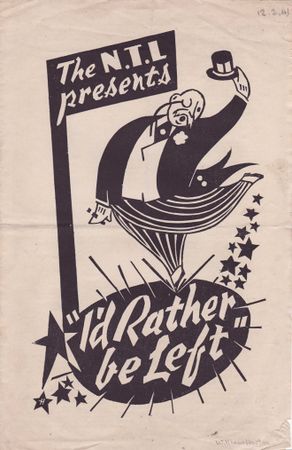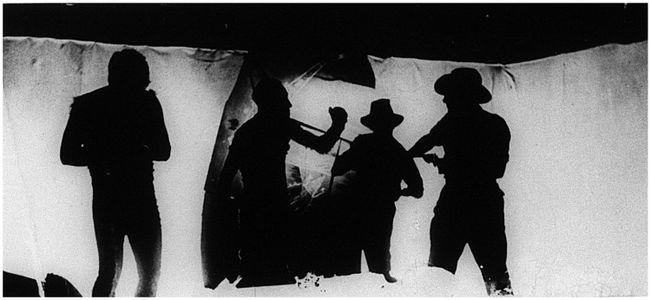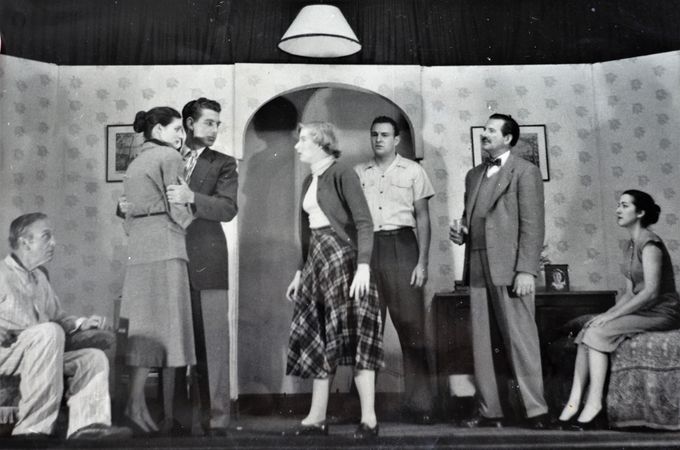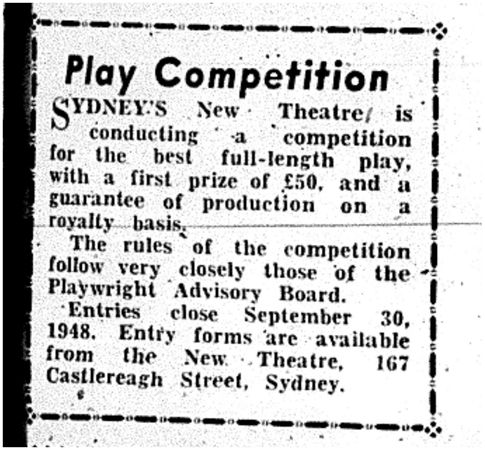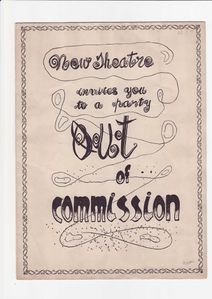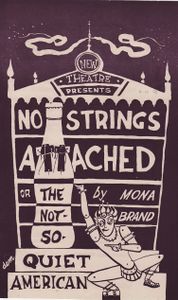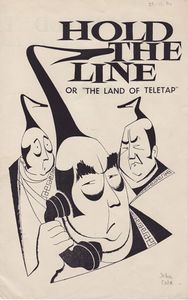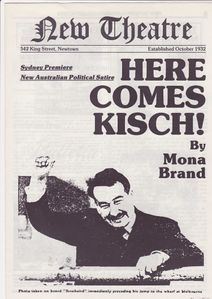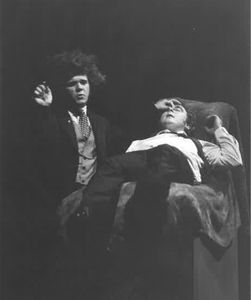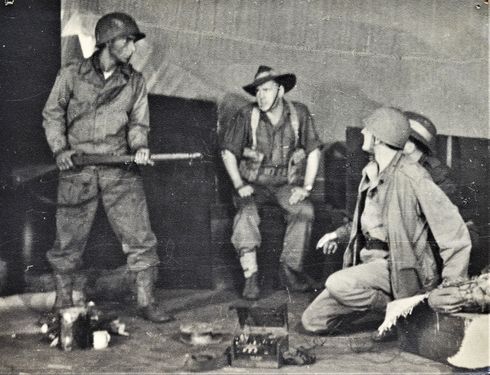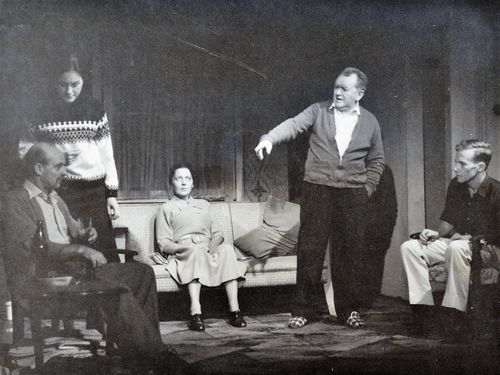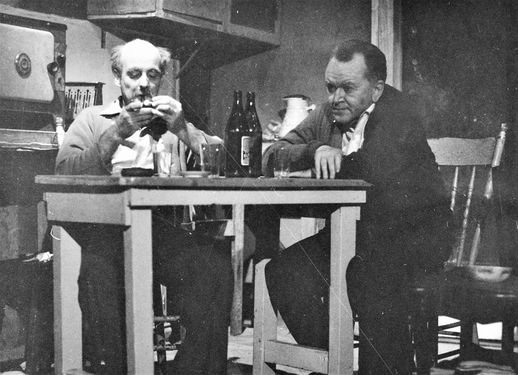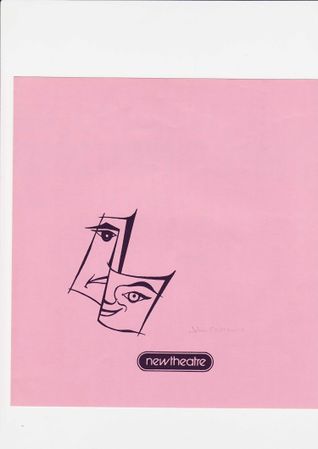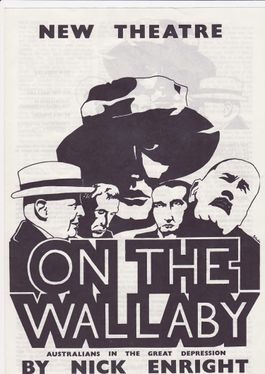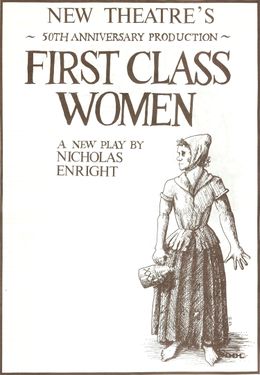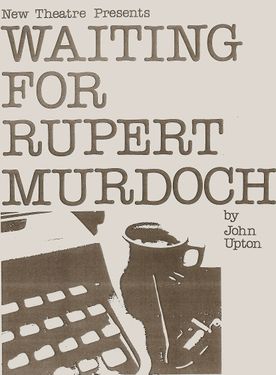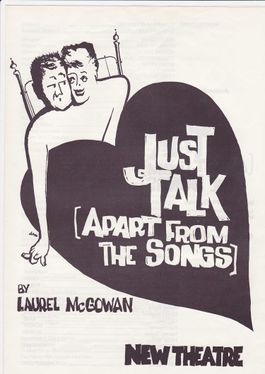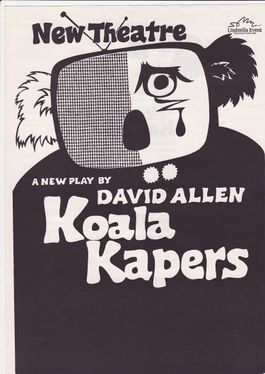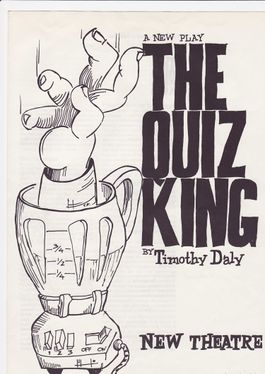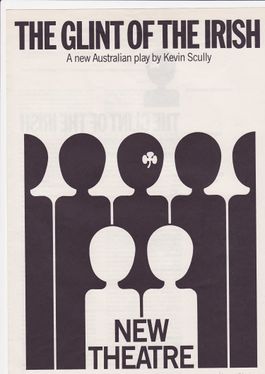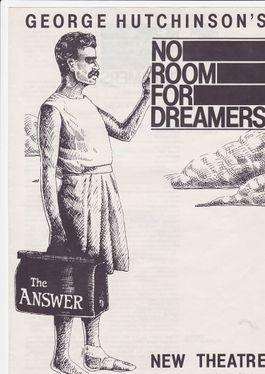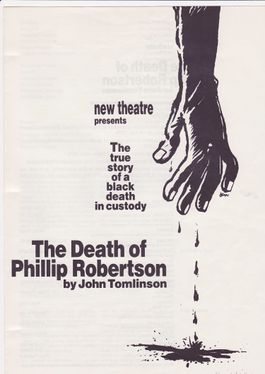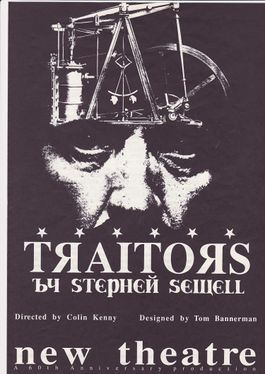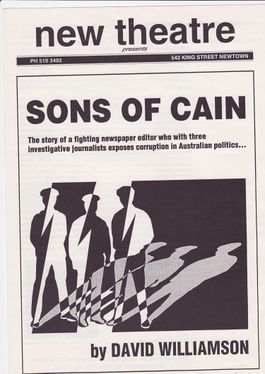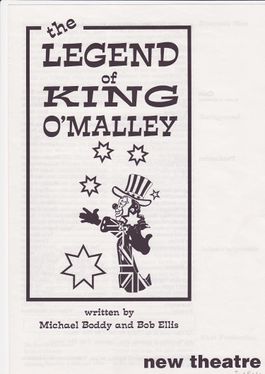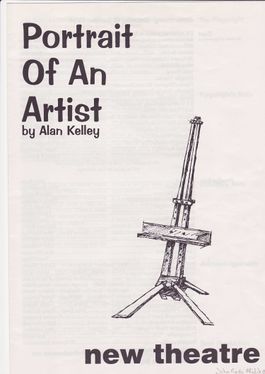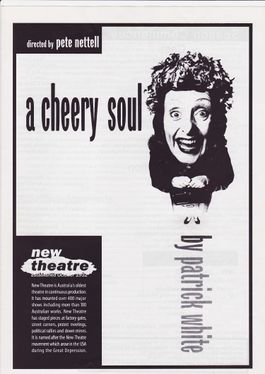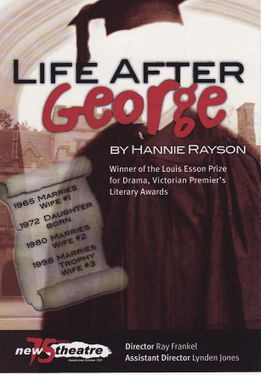Difference between revisions of "Australian Drama"
m |
m |
||
| Line 135: | Line 135: | ||
2007 april - life after george.jpg | | 2007 april - life after george.jpg | | ||
1999 removalists.jpg | William Haydon as Sgt Simmons and Steve Anderton as Kenny, The Removalists, 1999 | 1999 removalists.jpg | William Haydon as Sgt Simmons and Steve Anderton as Kenny, The Removalists, 1999 | ||
| − | |||
1997.1.4 Don s Party.jpg | Don's Party. 1997 | 1997.1.4 Don s Party.jpg | Don's Party. 1997 | ||
1997 sarsaparilla.jpg |The Season at Sarsaparilla, 1997 | 1997 sarsaparilla.jpg |The Season at Sarsaparilla, 1997 | ||
Revision as of 14:10, 8 April 2021
New Theatre History Home | Previous: Agit-prop and Street Theatre | Next: Mardi Gras
See also Agit-prop and Street Theatre, Children's Theatre, and writers' biographies in Persons of Interest.
A long-held policy of the New has been to present Australian works. These developed from crude agit-prop sketches in the early years to sophisticated full-scale productions, including musicals. Many were world premieres, many of the writers were women, and a number of plays dealt with Aboriginal issues.
In the 1930s the WAC staged a number of sketches about social problems by Nellie Rickie: Beyond the Road, Weights and Measures, Ladies in Hades. Her The Emissary , a warning against fascism in Australia, was developed into a full-length work. Katharine Susannah Prichard's Forward One dealt with shopgirls' conditions, Sixty-Miler (by Smail, Weeks and Foster) with the "coffin colliers" on the Newcastle- Sydney run, and Leslie Rees' Sub-Editor's Room with the double standards of the Press. Diana Reeve's Eureka was staged in "living newspaper style" in 1938, the same year she directed Catherine Duncan's The Sword Sung a peace play in verse. Duncan's Sons of the Morning, a love story set in a Cretan farmhouse in 1941 when the island is under threat of German invasion, was staged in 1945.
Betty Roland's agit-prop sketches The Miners Speak and On the Waterfront, delivered in Sydney's Domain, were succeeded by her full-length play Are You Ready, Comrade? in 1939 and Morning in 1940.
With the outbreak of war there was a shortage of overseas scripts. Staged in 1940 were Australian works Cecil Watts' The Patriot and the Fool, Bernard Cronin's No Armistice and Stampede, Rupert Lockwood's No Conscription, Ruth Bedford's Fear, Lionel Shave's Twelve Moons Cold, and The Firing Line written by a NTL collective.
The NTL Writers Group penned The Soviet Fights and 42A And All That, lightning sketches on wartime topics. Bill Brown's Men Who Speak For Freedom was also agit-prop. More sophisticated was I'd Rather be Left, a witty vulgar and satirical revue developed by Sydney University writers. With a broad appeal to both businessman and bohemian, it had a long run in 1941. Oriel Gray's revues followed: Marx of Time and Let's Be Offensive, both dealing with wartime politics.
The theme of Brisbane writer George Landen Dann's Fountains Beyond was the marginalisation of Aborigines. In the play a traditional resting ground is to be flattened for a children’s playground. George Farwell's Sons of the South were the striking shearers of 1891:
Tom Ryan: It’s plain, mates. The graziers took on more than they bargained for. If we hang together, we can’t be beat. But don’t get ideas we’ll have an easy win. Blacklegs waiting to take our jobs. We’ve got one weapon only. We need no other. The solidarity of the working people of Australia.
A number of plays by NT member Oriel Gray were staged in the 1940s-50s. Stories by Henry Lawson were dramatised in Lawson and he appeared as a character in Milestones. Western Limit, a "dustbowl play" about soil erosion, was followed by My Life Is My Affair, a study of a marriage breakdown. Had We But World Enough dealing with injustice to Aborigines was reviewed as "a superbly lively study of the colour problem in our country". Sky Without Birds, staged in 1952, concerned anti-Semitism in a railway town on the edge of the Nullarbor. The New also staged Oriel Gray's agit-prop pieces but rejected her Burst of Summer because it didn’t follow the CPA’s tenets. Sharing the Playwrights' Advisory Board's best 1955 play award, Gray's The Torrents was given a NT moved reading in 1998 but never a mainstage production, although co-winner Summer of the Seventeenth Doll was produced twice, in 1998 and 2009.
The central character of Katharine Susannah Prichard's Pioneers is a woman who gives shelter to escaped convicts. She leans over her baby's cradle:
Mary Cameron: Have I done wrong, little son? You know the vow I made when I came to this country … to help these poor creatures because ... when you were asleep under my heart I told thee all, beloved ... and I have not suffered ... as they have. These men were not wicked, my precious. It’s the cruel prisons make brutes of men!
On the same quadruple bill in 1944 was Office Interlude written and directed by NT member Kathleen Carroll. A boss dies suddenly leaving an office employee, the audience surmises, pregnant.
In Jim Crawford's Rocket Range, staged in 1947 and revived in 1957 because of renewed nuclear testing, Aborigines are moved off their tribal grounds by the Federal government.
The 1947 production was on a triple bill with Oriel Gray's My Life Is My Affair and Crawford's Welcome Home in which a couple separated during the war are forced to share cramped unhygienic accommodation with relatives. Joan Clarke's Home Brew, staged in 1954, dealt with the same housing problems.
The Dangerous Sex by another NT member Joan Gibson, a teacher and mother writing in her spare time, was staged in 1948. A contemporary woman, angry at union objections to women working outside the home, is musing on the female lot when she falls asleep and is taken through a cavalcade struggling for emancipation and equal pay. The cast of characters includes a cavewoman, Florence Nightingale, Mary Wollstonecraft, Fanny Burney and Anna Seward.
Mona Brand succeeded Oriel Gray as NT's "resident playwright" : Strangers in the Land, Better A Millstone, Out Of Commission, No Strings Attached, Hold the Line, Here Under Heaven, Our "Dear" Relations, Come All You Valiant Miners, Barbara, On Stage Vietnam, 1971 - A Race Odyssey, And A Happy New Year, The Pirates of Pal Mal, Flying Saucery, The Three Secrets, Here Comes Kisch! plus items for revues and Street Theatre. With Margaret Barr she devised Going, Going Gone in 1968.
Australian political revue was revived in 1949 with Pot of Message written by Pat and Cedric Flower. Others followed, their scripts supplied by NT members: Press The Point 1950, Follies Bourgeois 1951, United Notions 1953, TV Or Not TV 1957, Fission Chips 1959, You've Never Had It So Good 1965, Exposure 70 1970, It's Time To Boil Billy 1972, What's New 1973 and And I Still Call Home Australia 1980. On Stage Vietnam was staged in 1967.
The quintessential Australian folk musical Reedy River premiered in 1953. Its author Dick Diamond followed it up with the less successful Under the Coolibah Tree in 1956 (the only Australian work staged in Sydney during the Olympic Games). Reedy River was frequently revived when the New's coffers were empty: 1960, 1963, 1969, 1973, 1979, 1982 and 1988.
Frank Hardy's Black Diamonds, a polemic against the exploitation of coalminers, and his The Ringbolter, centred on a seamen's strike, were staged in 1958 and 1967. Ralph Peterson's The Night of the Ding Dong, a satire on jingoism, was staged in 1959; Alan Seymour's The One Day of the Year in 1964; The Ballad of Angels' Alley in 1965 and 1973.
Australian plays produced during the 1970s: Barry Oakley's The Feet of Daniel Mannix; R C Herbert's An Isolated Case of Heterochromia; Kevin McGrath's John Grant's Journey; John Romeril's The Radioactive Horror Show; Kevin Barry Morgan's Friday the Thirteenth; and Sumner Locke Elliot's Rusty Bugles.
Australian plays produced during the 1980s: Walter Cooper's Colonial Experience; Nick Enright's First Class Women and On The Wallaby (twice); Ron Raygun in the Antipodes; John Upton's Waiting for Rupert Murdoch; The Money or the Box; At Last! The 1984 Show; Laurel McGowan's Just Talk (Apart From The Songs); Timothy Daly's The Quiz King; David Allen's Koala Kapers; Kevin Scully's The Glint of the Irish; George Hutchinson's No Room for Dreamers; and John Tomlinson's The Death of Phillip Robinson.
Australian works produced during the 1990s: Invisible Circus; Traitors; Furtive Love; Sons of Cain; The Legend of King O'Malley; The Chapel Perilous; Jigsaws; Portrait of an Artist; The Death of Peter Pan; One Word ... We! the story and songs of Pete Seeger; The Father We Loved on a Beach by the Sea; Don's Party; The Season at Sarsaparilla; Pacific Union; Summer of the Seventeenth Doll; Only Heaven Knows; Summer of the Aliens; The Removalists; Relative Comfort; and A Cheery Soul.
Australian adult non - Mardi Gras works produced during the 2000s: Barry Lowe's adaptation of The Great Gatsby; Jennifer Compton's The Big Picture; The Club; Who's Afraid of the Working Class?; The Body Ophelia; Pandora's Garden; Lemon Delicious; Mad Before Midday; Navigating; Features of Blown Youth; Falling Petals; The Woman in the Window; Manly Mates; Love Potions; Any Port in a Storm; Singing the Lonely Heart; Life After George; Oh, What A Lovely War, Mate!; The Man From Mukinupin; Traitors; Art Is A Weapon; A Nasty Piece of Work; Cosi; Parramatta Girls; A Quiet Night in Rangoon; Lucky; Women, Power & Culture; The Venetian Twins; The Ham Funeral; Wolf Lullaby; When The Rain Stops Falling; Dinkum Assorted; That Eye, The Sky; Summer Rain, The Chapel Perilous and Australia Day.
New Theatre History Home | Previous: Agit-prop and Street Theatre | Next: Mardi Gras




